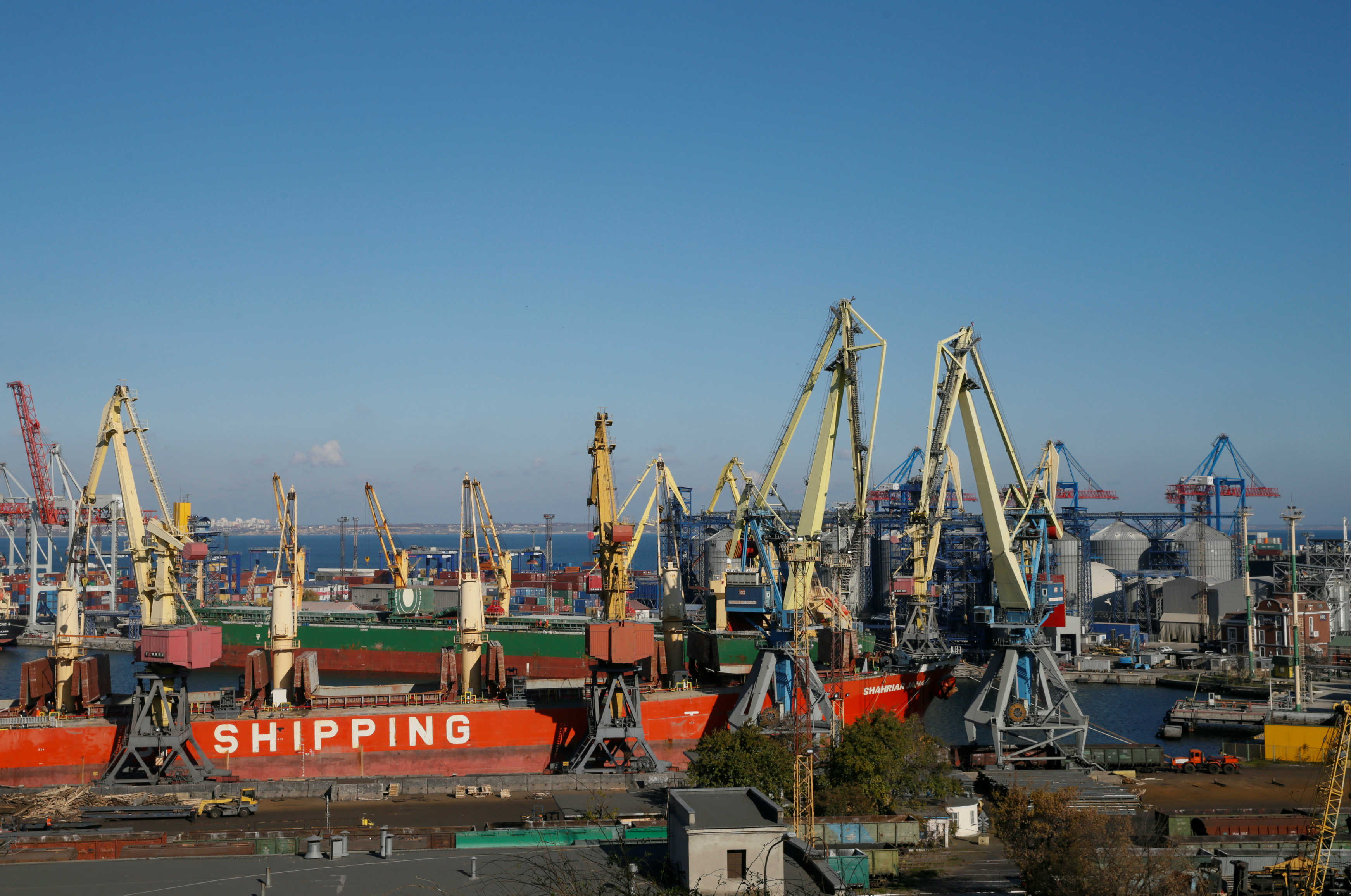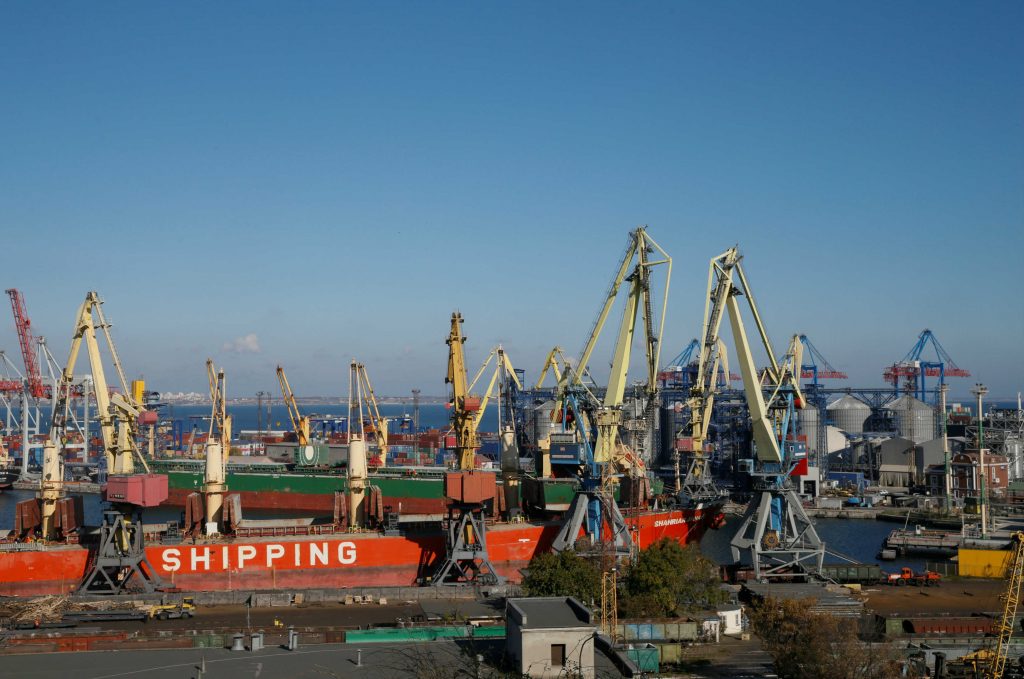 In an interview last October, Ukrainian Prime Minister Volodymyr Groisman revealed that not a single x-ray scanner was operational at customs checkpoints in Ukraine, suggesting that corrupt customs officers had deliberately damaged the equipment to facilitate criminal activity.
In an interview last October, Ukrainian Prime Minister Volodymyr Groisman revealed that not a single x-ray scanner was operational at customs checkpoints in Ukraine, suggesting that corrupt customs officers had deliberately damaged the equipment to facilitate criminal activity.
The accusation speaks to the severity of entrenched corruption in the customs services of Ukraine, even amid a slew of post-Maidan reforms to improve the trade and investment climate. Perhaps no other economic hub captures this tension between vested interests and substantive change better than the Odesa ports on the Black Sea. The recent return of wholesale corrupt practices to Odesa ports demands attention: it underscores the necessity of sustained political will to implement reform and the ongoing threat to both economic prosperity and national security that corruption poses in Ukraine.
Odesa has been a key battle in the tug of war between reformers and spoilers in Ukraine. In 2015, President Petro Poroshenko brought on former Georgian President Mikheil Saakashvili to serve as governor of the Odesa region, with a young political activist, Yuliya Marushevska, selected soon after to head the customs office overseeing the notoriously corrupt Odesa ports. Their publicly declared mandate was clear: to weed out corruption and boost economic efficiency.
During their short tenure, the team succeeded in some meaningful ways, minimizing opportunities for corrupt behavior and increasing international trade through the port. Marushevska rapidly purged the ranks, instituted a new hiring process with US and EU support, strengthened transparency, and considerably quickened the customs clearance process. Her effective oversight of Odesa’s United Port Community Information System, a single-entry electronic solution for import, export, and transit-related information piloted in Odesa beginning in 2012 and introduced across Ukraine in 2014, helped to limit human touch points in the supply chain and continue harmonizing Ukrainian procedures with EU best practices.
However, as often happens in transitioning post-Soviet economies, a backlash by those profiting from longstanding illegal schemes halted progress at the end of 2016. For instance, Roman Nasirov, the former head of the state fiscal service in Ukraine now facing abuse of power charges, opened a baseless anticorruption investigation into Marushevska to slow the implementation of reforms at Odesa ports. The steady stream of resignations by frustrated reformers in Odesa coupled with the decision by USAID to stop supporting customs reform in the region left Odesa ports fully exposed to a return of the status quo.
Indeed, local sources allege that the all-too-familiar practices of cargo undervaluation and facilitation payments have now returned to Odesa ports under the passive tutelage of Alexander Vlasov, who has been in charge since spring 2017 following Nasirov’s suspension. According to Kirill Molchanov, deputy director of the Ukrainian Institute for Analysis and Policy Management, Odesa customs officers levied bribes on 358 containers in June alone and amassed illegal wealth of over $1.3 million.
Such a rollback of customs reform continues to undermine Ukraine’s economic potential. The return of grey market schemes at Odesa ports risks Western business leaders’ fledgling trust in Ukraine’s improving trade and investment climate. To be clear, American and European companies are increasingly receptive to pursuing business opportunities in Ukraine. But the lack of political will in Kyiv to prosecute high-profile corrupt officials like Nasirov, and the ongoing existence of vested interests that hinder the implementation of reforms, reinforce the perception of Ukraine as a country crippled by corruption.
These setbacks also pose serious security challenges. Supply chain corruption facilitates much of the transnational organized criminal activity across the country, from the smuggling of illicit and counterfeit goods to the trafficking of Ukrainian forced laborers and sex workers. Located on the frontlines of the war with Russian-backed forces in the east, Odesa faces specific exposure to weapons trafficking as well. Earlier this year, Turkish authorities in the Black Sea port city of Zonguldak arrested an Iranian national smuggling Russian-made antitank missile components in a ferry-bound cargo truck from southeastern Ukraine.
The ongoing saga of Odesa ports illustrates the long road ahead for reformers in Ukraine. In the near term, the government needs to more effectively mobilize the twenty interagency anticorruption units introduced last year, which were originally designed to move swiftly between customs checkpoints to crack down on corruption. Odesa should remain a top target in these efforts. For more lasting change, American and European partners must keep political pressure on Kyiv to forge ahead on the customs reform agenda and maintain technical assistance to reformers on the ground as part of a broader strategy to improve Ukraine’s trade and investment climate.
Peter J. Marzalik is a project assistant at the Atlantic Council’s Eurasia Center. He tweets @PeterJMarzalik.
Image: Cranes are seen in the Black sea port of Odesa, Ukraine, November 4, 2016. REUTERS/Valentyn Ogirenko
